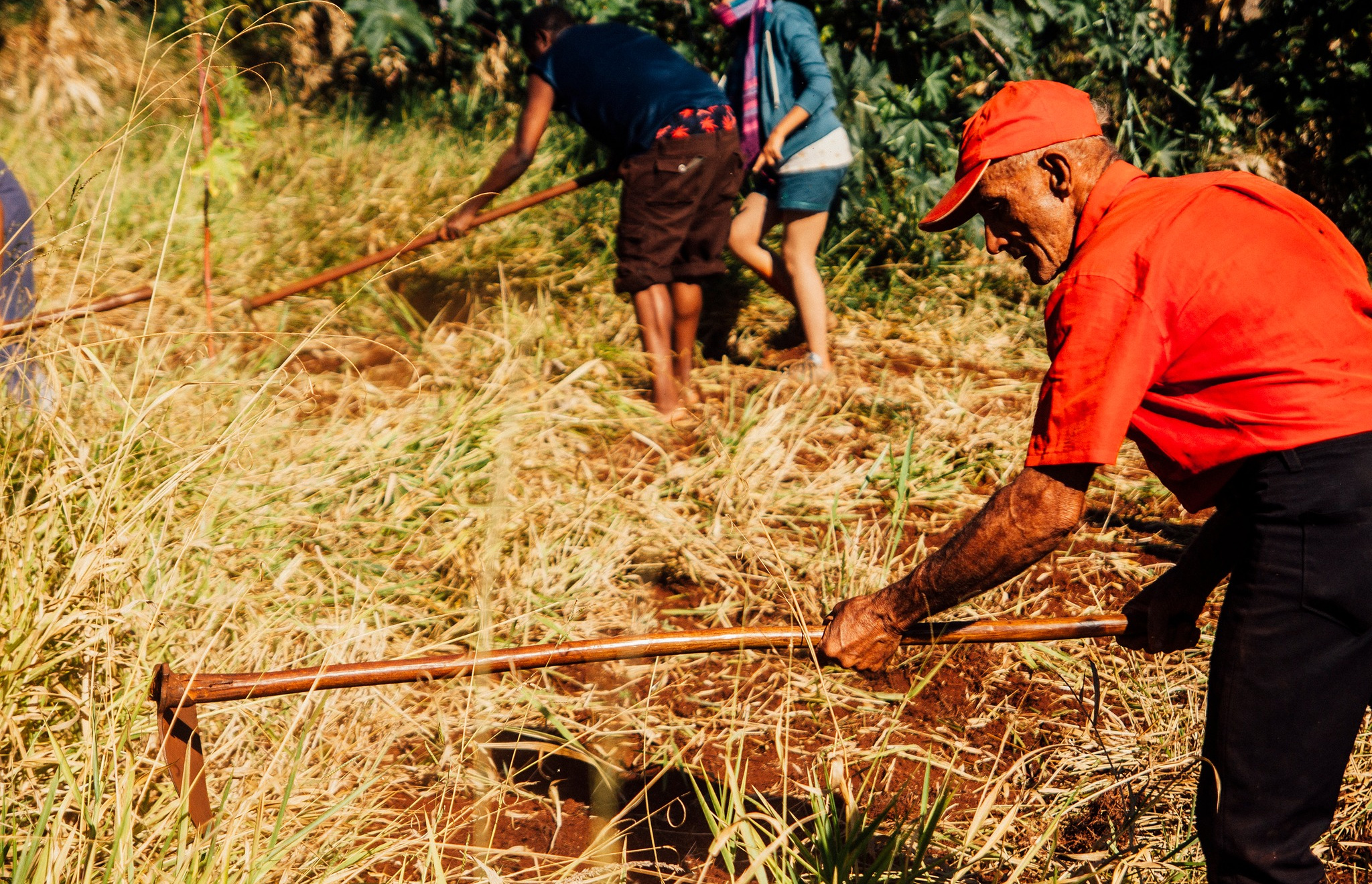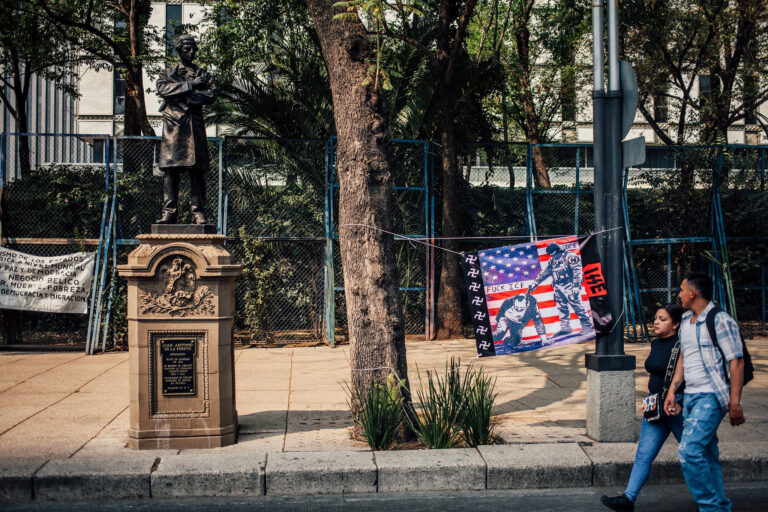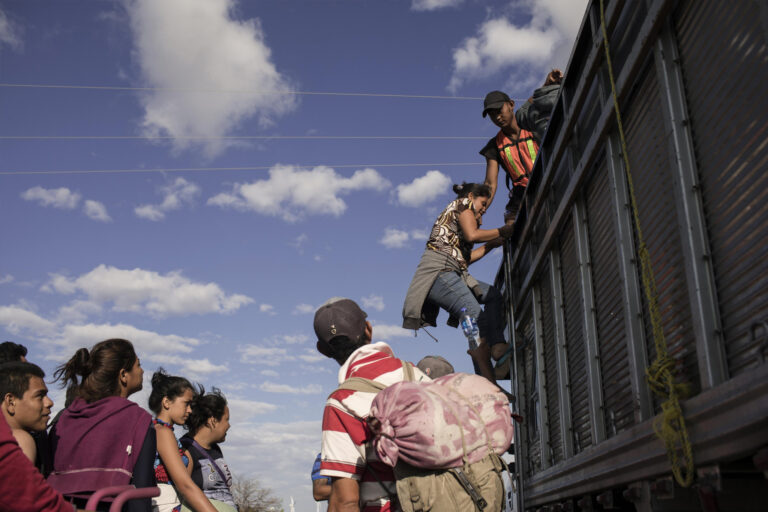The Right to Life, Against Profit
This article by Manuel Pérez-Rocha originally appeared in the June 30, 2025 edition of La Jornada, Mexico’s premier leftist daily newspaper.
I spent a few days in rainy Mexico City, the city where I was born, raised, and worked for many years with the Mexican Network of Action Against Free Trade (RMALC) and other organizations. I opened Facebook today and found a post by Filipino activist, thinker, and friend Walden Bello, who has been writing for years about the crisis of multilateralism. He asserts, among other things, that negotiations to save the planet from climate disaster are actually dead. He quotes Gramsci, who said that “the old world is dying, the new is slow to emerge. And in that chiaroscuro, monsters emerge.” These monsters are the makers of war and death: Trump and Netanyahu, and human rights violators in our hemisphere, such as Bukele, Noboa, and the rotten Milei. Bello highlights the emerging role of the BRICS countries and the Global South (dominated, however, by their own elites). In this new world, Trump is clumsily dealing a blow to US hegemony and the Western neoliberal system.
Amidst such a depressing path, marked by wars perpetrated by warmongering corporations—represented by monstrous presidents—against innocent people, just last Thursday I was filled with four hours of hope, by people who live to fight and who, far removed from the centers of power, bring hope to humanity. Because, despite the capitalist mercantilism that destroys everything, we do exist! I spent four hours glued to my computer participating in two events. First, the seminar “Defending Life: Lessons from the Peoples,” organized by María Atilano, who was the courageous coordinator of the RMALC for many years, and with people from the No More Global Agreement Campaign (TLCUEM) and the organization Enlace Comunicación y Capacitación. The seminar exposed the socio-environmental consequences of so-called “development” projects, which accentuate the neoliberalism that the 4T seeks to banish. People like Fernando Hernández, from the Dutch organization Both Ends, Eva Robles, José Godoy, and Ramón Vera, from the Network in Defense of Corn and the Biodiversity Alliance in Latin America, spoke about the importance of agriculture as a source of life, food sovereignty, and alternatives to agribusiness and extractivism.
María describes “a journey through different experiences and proposals that have emerged in different parts of the country, where peoples, communities, organizations, and groups fight for the fundamental right to life, which is compromised by capitalist, colonial, and patriarchal ambitions, reinforced by trade and investment treaties, and the complicity of political forces and armed forces.” The speakers denounced institutions such as the WTO, the OECD, and the European Union (not to mention the EU), “as key nodes where policies of dispossession and marginalization are designed and reinforced on a global scale.”
In contrast, we heard how community organizations can transform trade rules, defend territories, promote agroecology, seeds, and solidarity-based ways of life. For example, Eva and José work with an interdisciplinary collective and have recovered more than 60,000 hectares of Wixárika territory through community organizing strategies, political action, legal advocacy, research, and denunciation of the effects of agribusiness on the environmental, health, and food crises. They have also made visible community solutions through workshops and actions such as women’s exchange of native seeds. Ramón, a contributor to our newspaper, La Jornada (coordinator of the Hojarasca supplement) and my former high school teacher, affirms that the defense of corn is the defense of the self-determination of communities (another session will be on July 3; registration).
After that seminar, I immediately accessed the online preview of the documentary Pero sí existemos (But We Do Exist). What an apt title! It stems from the explanation given by Mayab environmental leader Araceli Domínguez that although the US mining company Vulcan lies about not having a community resisting the CALICA project, in the vicinity of Playa del Carmen, “we do exist.” Pero sí existimos (And Yet We Exist) tells a powerful story of resistance against mining exploitation and environmental damage. It exposes the reality of investor-state lawsuits, through which transnational corporations demand multimillion-dollar compensation from countries for unrealized profits. These unilateral and opaque mechanisms are often established to prevent the implementation of public policies aimed at protecting the environment, especially in countries of the disparagingly called “third world.”
And Yet We Exist offers testimonies of the environmental damage, human rights violations, and attacks on Mexican sovereignty perpetrated by Vulcan, the largest US asphalt company. It shows us that the enunciation of the existence of the Torres de la Paz communities is the expression and reflection of their resistance. It brings to light the voices that these arbitration panels, like the World Bank’s ICSID, rarely want to hear, demonstrating the power that affected communities can wield when they organize and fight for their rights.
And what a group of people participated in the presentation of the documentary (to be shown soon); in addition to Araceli, Romain Champalaune, the film’s director; Quetzal Tzab González, an indigenous Mayan lawyer; Teresa Gutiérrez Haces, a researcher at UNAM; Raúl Benet, an environmental advisor; Lucía Bárcena and Julia Senna, from the Transnational Institute; and representatives from Semarnat (National Semarnat).
Four consecutive hours of hope, emphasizing the public interest in not continuing to sign, “modernize,” or “update” neoliberal trade agreements as they have been until now, and in striving to have initiatives from communities, organizations, and groups that do exist and defend life recognized.
-
CNTE Announces 72 Hour National Strike & March to Mexico City’s Zócalo
The class-conscious teachers union will also make “courtesy visits” to the embassies of countries who committed atrocities against Iran, to show their rejection of US imperialism.
-
Yet Another Mexican Citizen Dies in ICE Custody
The unidentified victim is the 9th Mexican citizen to have been killed in ICE detention since the beginning of 2025; this time in Adelanto, California.
-
Let’s Talk About Migration: Trumpist Persection
Millions of women who have endured unspeakable violence on their migration journey are now being persecuted in the United States by an extremely xenophobic and misogynistic government, led by Donald Trump,




